
 |
| Home Links History Family Games Contact |
|
John Allan Taylor Cabinetmaker |
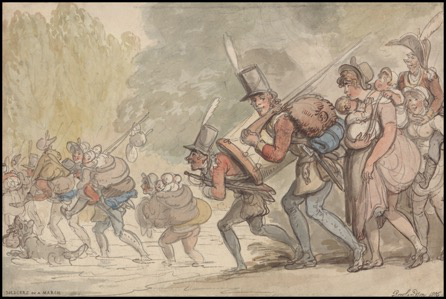
|
|
William was born in Muiravonside, Stirlingshire to John Taylor and Elizabeth Lang on 30th June 1788. Little is known about his early life and it´s not until a reference in the 1851 NRO´s census that we find out more. Noted as ´living in Kirkcaldy´ (some thirty miles from his birthplace) and ´aged 61´, he was a ´Chelsea Pensioner. From his death certificate (14th January 1857) he was confirmed to have been a ´soldier on half pay´ when he died after ´suffering paralysis for some months´. |
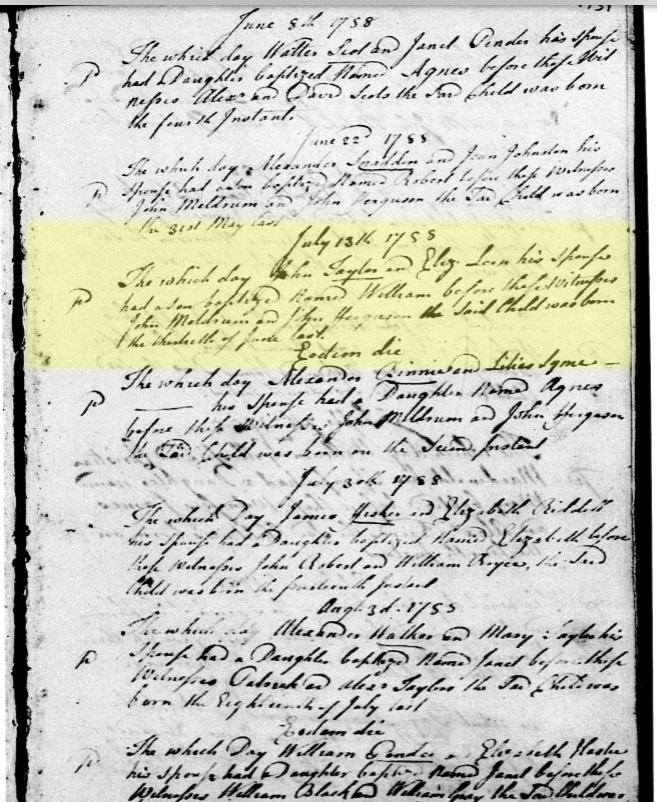
|
|
William´s father John Taylor had been a tailor by trade in Muiravonside and his marriage to Elizabeth Lang, according to the Old Parish Registers, was on the 9th November 1750 in Falkirk, some where his father too had lived and worked as a Maltman (a brewer of beer) some 40 years before. William´s son John Allan Taylor was born in Dublin´s Royal Hospital on 14th June 1833 whilst his father William was serving in the military. The youngest of five siblings, John´s oldest brother William was born in Ireland in c1826 and would become a Ships Carpenter whilst his brother George, born in England and a year later, was apprentice to a Tailor. He had two sisters, Margaret, born circa 1828 in England and Mary, who was born in Ireland about 1831. |
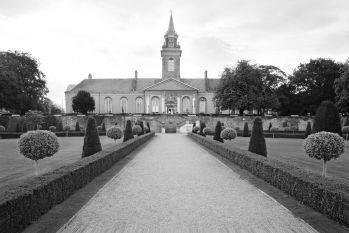
|
|
So, a Maltman, a Tailor, a Tailors apprentice and a Ships Carpenter and children born in England and Ireland, but where´s the cabinetmaker connection? Cabinetmakers of distinction In the later 18th and early 19th century the profession of cabinet making was very fashionable. Thomas Chippendale is probably the most famous of all. Chippendale was a cabinet maker and furniture designer based in London. His father was a joiner and probably the person that got Thomas started in the trade. |
|
Chippendale was the first cabinet-maker to publish a book of his designs, which was called "The Gentleman and Cabinet Maker's Director", published in 1754. This influenced many other cabinet makers and illustrated almost every type of mid-18th century domestic furniture. He died of TB in 1779 but son Thomas carried on the family business. |
|
Elsewhere Thomas Sheraton and George Hepplewhite were the other individuals in the ´big three´. Sheraton worked as a professional consultant and architecture and design teacher, and published "The Cabinet Maker's and Upholsterer´s Drawing Book" and "The Cabinet Dictionary" in 1803, explaining the techniques of furniture making and upholstery. Meanwhile Hepplewhite, who also worked in London, was known for his slender and elegant furniture style and particularly for the large shield shape on chair backs. Little is known about Hepplewhite the man, and when he died his wife Alice continued to publish. Some claim that the name ´George´ was a pen name for Alice and she in fact was the craftsman. Chippendale and his contemporaries were excellent furniture designers and influenced the cabinet makers of the 19th and 20th centuries. Their designs and publications are so important that they will continue to influence people as furniture design evolves throughout the ages. |
|
The famous John Taylor Just 16 miles away from Kirkcaldy in the village of Orwell at the beginning of the 19th century (and 20 years earlier than our original John (Allan) Taylor), another John Taylor was born. This John Taylor, born to David Taylor and Isabel Whyte on 17th May 1802, was the eldest of five siblings; Helen, Robert, Christian and Isabel with only nine years separating them. Father David was a worker or shaper of wood known as a ´wright´, skills he would pass on to his ambitious son John, in abundance. Twenty Three years later, the young and ambitious John Taylor, an up and coming cabinet maker, upholsterer, chair maker and undertaker, opened his first shop in West Thistle Street, Edinburgh. Certain characteristics singled him out clearly from the rest. He possessed skill, a combination of manual dexterity and knowledge, which gave him great control over his tools and materials, enhancing the finished products. This generally ensured a higher wage (about twice that of an unskilled man) and more regular employment than unskilled workers. |
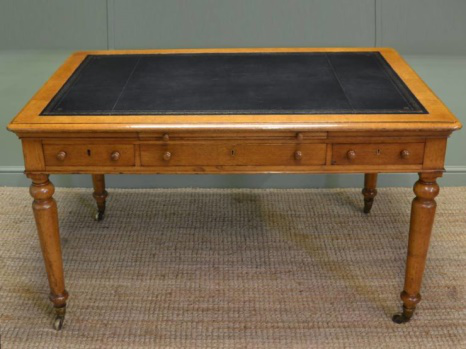
|
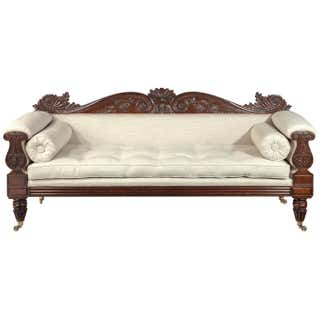
|
|
His high standard of workmanship, finest quality timbers and stylish designs were much sought after and within a few years he moved to larger and larger premises before ultimately settling on a more prestigious address at 109 Princes Street, Edinburgh. During this period his son (John) was employed so the sign above the door was changed to ´John Taylor & Son´. |
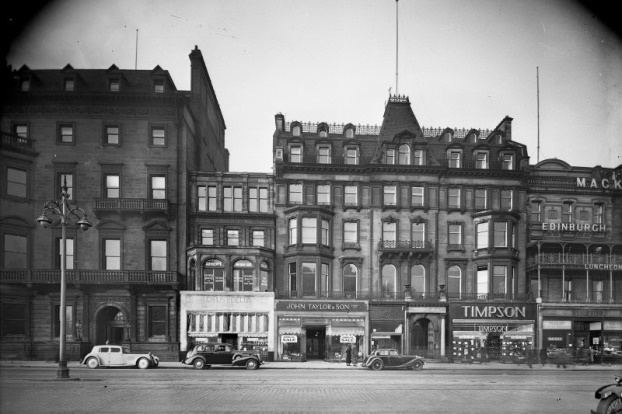
|
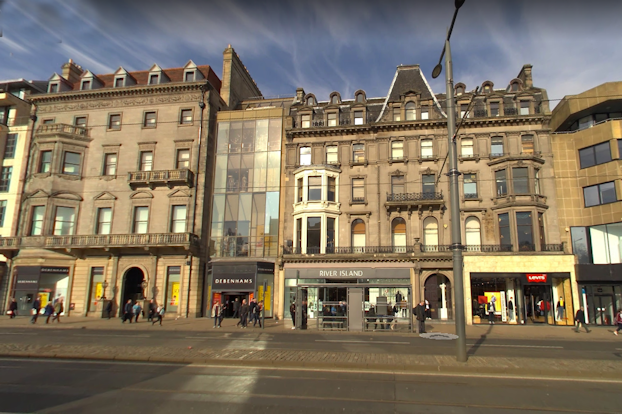
|
|
Meanwhile our John (Allan) Taylor had also become a ´Joiner and Cabinetmaker´ and at just 17, he continued to live in Kirkcaldy with his older sister Margaret and his father, as indicated on the 1851 census. On 10th of August 1855, John married his sweetheart, Margaret Smith Clinkscale before taking the plunge and moving his new family to Edinburgh. |
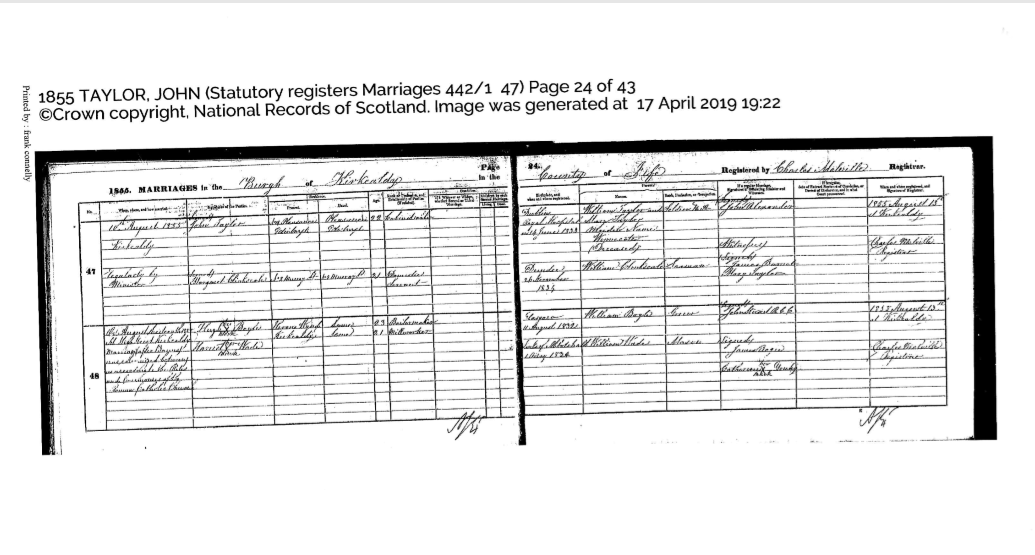
|
|
By Appointment By 1852, in the Victorian period, when John Taylor & Son´s prestigious new shop in Princes Street was graced by the good and great, John Taylor & Son were appointed ´Cabinet makers and Upholsterers to Her Majesty the Queen. At its peak the business employed 90 men and four apprentices. Our third John Taylor already had his ´name above the shop´. The eldest son of the family, he had grown from an apprentice, earning an unskilled wage of about 15 to 25 shillings, to now running the shop. His natural business talent saw him expand the business within just 4 years, including the opening of a new ´Rosemount Cabinet Works´ at Gardner´s Court in Edinburgh, which were established around 1857. At its peak it employed almost 300 staff. Taylor & Son (now however just ´son´) stamped a great deal of their furniture but unfortunately the business records of the firm did not survive and it is not possible to date pieces from their serial numbers. The business continued in one form or another until finally closing its doors in 1945. |
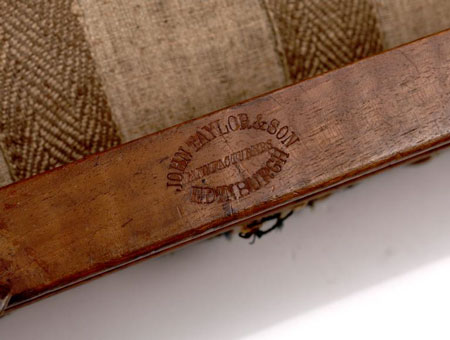
|
|
The story doesn´t end there. Much happened in the cabinet making Taylor families in the 1850´s but other than the facts already stated, little is known beyond that. John Allan Taylor lived until 13th January 1921 when he died of ´senility´. His last noted occupation was ´cabinetmaker ´ and his place of death just a stone´s throw from his namesakes Rosemount Cabinetworks Works at 42 Rosemount buildings, Edinburgh. Maybe a fitting end.
References: |
|
John Allan Taylor Family Tree |
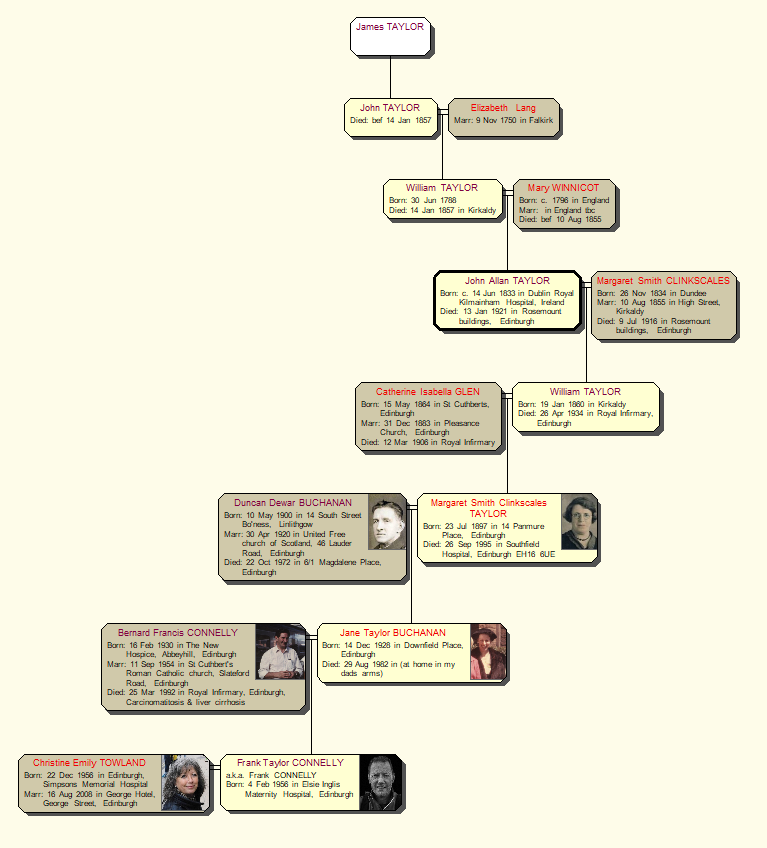
|
|
John Taylor and Sons Serving Cabinet, owned and lovingly preserved by Hilary Malspeis, USA, who kindly forwarded the following photographs |
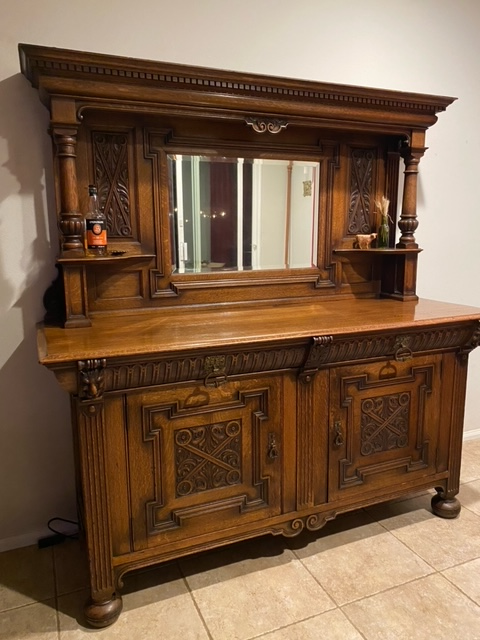 |
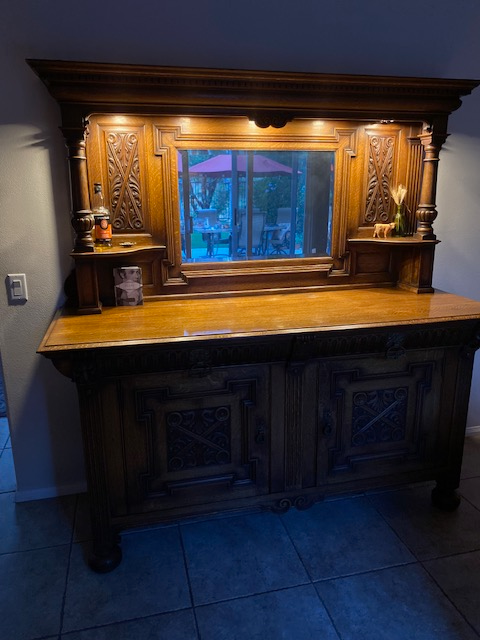 |
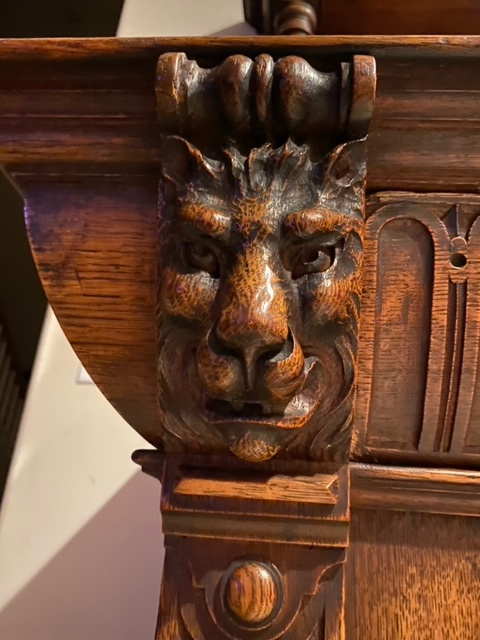 |
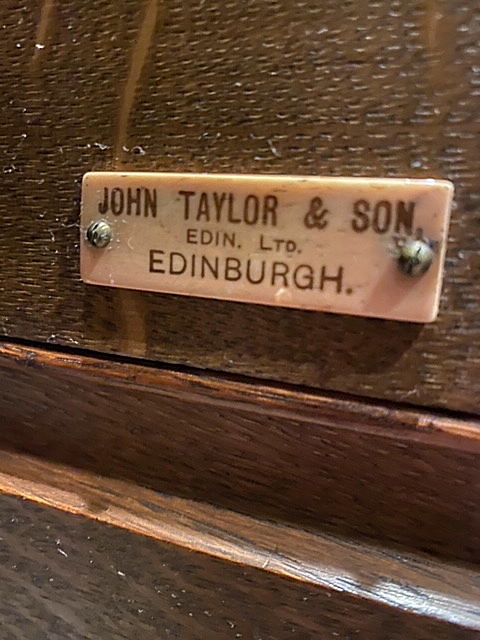 |
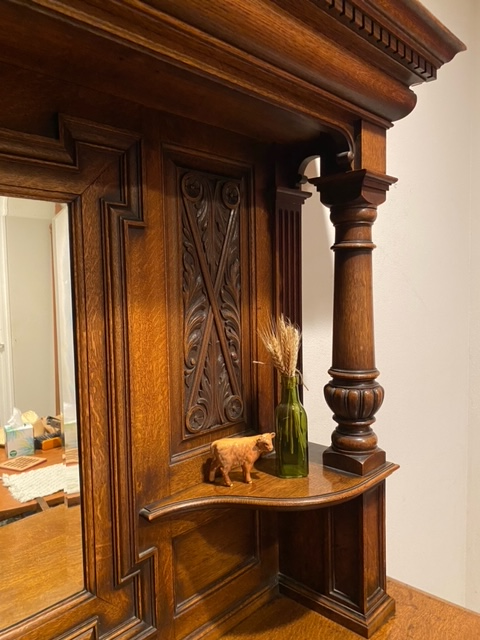 |
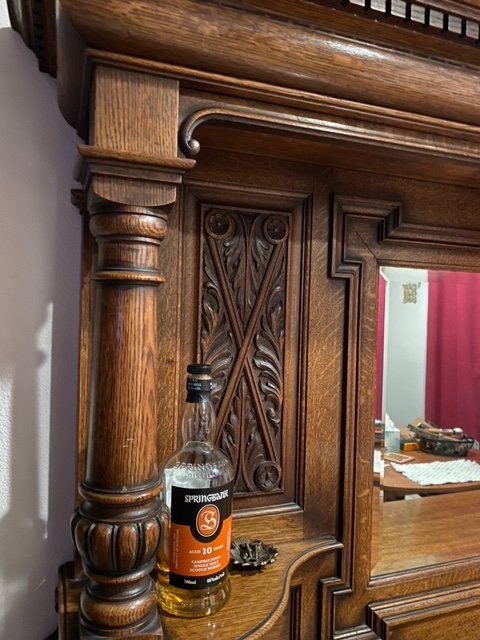 |
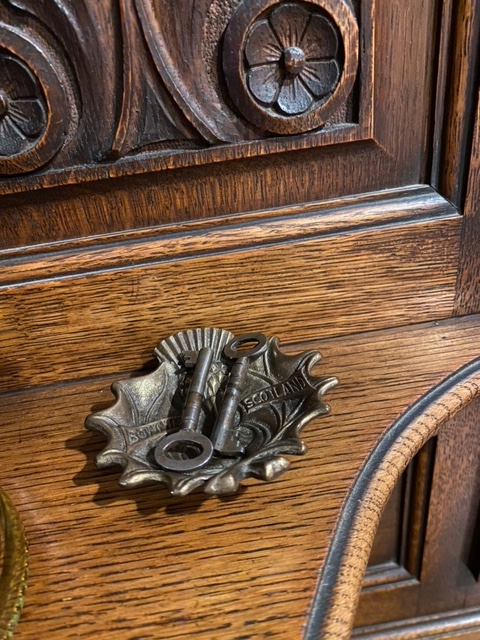 |
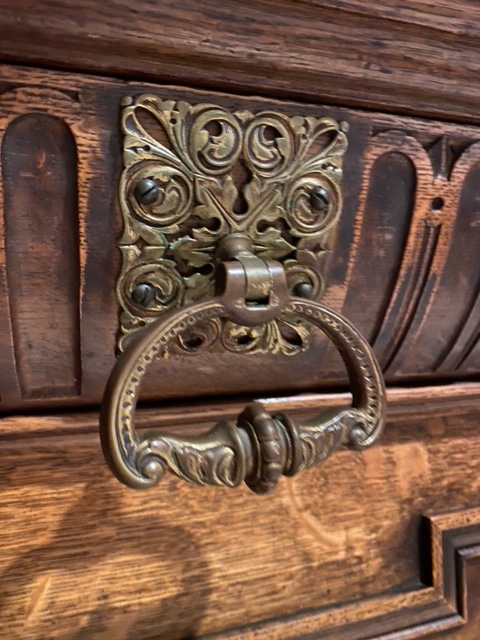 |
|
Frank T Connelly October 2019 |
| Home Links History Family Games Contact |
| David Connelly © |